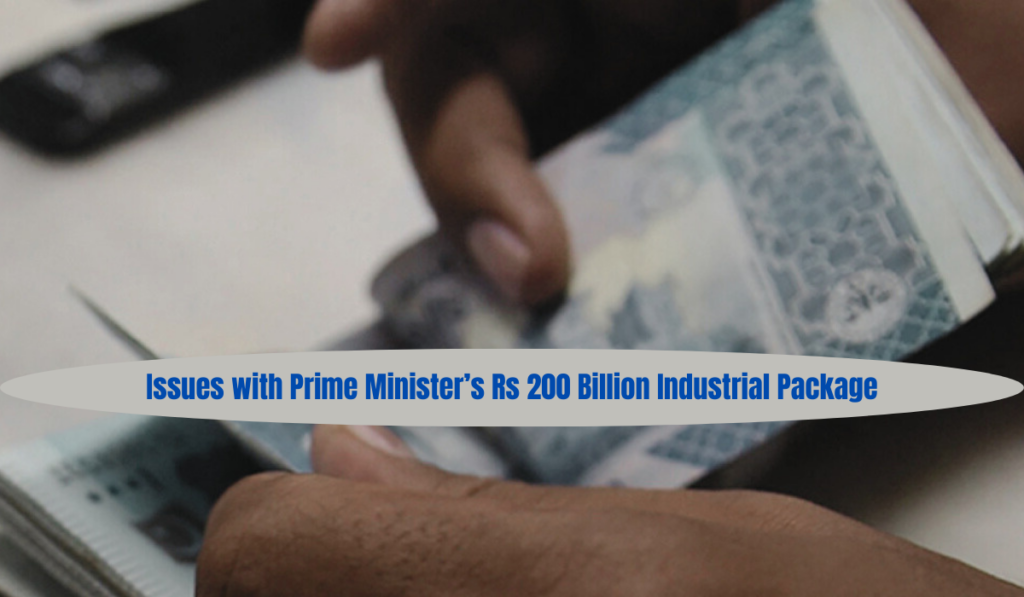Issues with Prime Minister’s Rs 200 Billion Industrial Package!

Introduction
Prime Minister Shehbaz Sharif’s Rs 200 billion industrial packages aimed at reducing electricity costs for businesses is facing objections from the International Monetary Fund (IMF). This package, which includes cutting power rates for industrial consumers and imposing a wealth tax, has raised concerns from the IMF regarding its financial impact and fairness.
Key Elements of the Industrial Package
- Power Rate Cut: The package proposes a reduction of Rs 10.69 per unit in electricity tariffs for industrial users.
- Wealth Tax: The government suggested a 0.1% wealth tax on all types of assets including bank balances and shares, and a 0.5% wealth tax on assets declared in wealth statements.
IMF’s Concerns
- Electricity Rate Reduction:
- The IMF sees the Rs 10.69 per unit reduction in industrial electricity tariffs as a hidden subsidy to industries.
- The IMF is worried that this reduction would shift the financial burden onto residential consumers.
- Wealth Tax Proposal:
- The IMF opposed the wealth tax on cash held in bank accounts.
- The IMF believes that excluding bank balances would reduce the overall revenue impact of the wealth tax, making it less effective.

Issues with Prime Minister’s Rs 200 Billion Industrial Package!
Financial and Policy Implications
- Budget Allocation:
- The government allocated Rs 120 billion in the budget to finance the package for the next fiscal year.
- The remaining amount is expected to be recovered through fixed electricity charges on residential, commercial, and industrial consumers.
- Fixed Charges for Electricity:
- The government proposed significant increases in fixed electricity charges:
- Up to 25kW Users: Rs 1000 per kW per month.
- B2 Category (up to 500kW): Rs 2000 per kW per month.
- B3 and B4 Categories (5000kW and above): Rs 2000 per kW per month.
- Impact on Industrialists:
- Industrialists argue that the increased fixed charges will outweigh the benefits of the tariff reduction.
- They claim that the high fixed charges would make it financially burdensome for industries operating below full capacity.
Previous IMF Objections
- February 2024: The IMF’s Mission Chief, Nathan Porter, had earlier expressed concerns about a similar industrial tariff reduction plan. The IMF believed it did not address fundamental issues like circular debt and could place additional burdens on households.
Current Status
- The IMF has asked for more clarifications on the Rs 200 billion package.
- The government shared additional data with the IMF over the weekend, hoping to gain approval for the industrial package.
- No response has been received from the IMF’s Resident Representative, Esther Perez, regarding whether the IMF was consulted before the package announcement.
Broader Economic Context
- Economic Conditions:
- Many factories are not operating at full capacity due to weak economic conditions.
- The fixed charges, even when factories are not utilizing full capacity, would still apply, creating financial strain.
- Previous Cross-Subsidies:
- The industrial tariff reduction eliminates previous cross-subsidies where industries paid to support lower residential tariffs.
- Increased Gas Prices:
- The IMF also suggested significant increases in gas prices to cover the full cost of imported LNG or cutting gas supplies, which the government has declined.

Conclusion
Prime Minister Shehbaz Sharif’s industrial relief package is under scrutiny by the IMF. Concerns regarding financial sustainability and fairness have led the IMF to object to both the proposed power rate cuts and the wealth tax. The government is negotiating and providing additional data to address these concerns and aims to find a resolution that balances economic support for industries with financial responsibility.
References
- Government Sources: Information on the Rs 200 billion package and IMF objections.
- IMF Communications: Comments from IMF officials regarding the package and previous objections.
- Industrialists’ Reactions: Feedback from industrial stakeholders on the impact of the proposed changes.



16 thoughts on “Issues with Prime Minister’s Rs 200 Billion Industrial Package!”